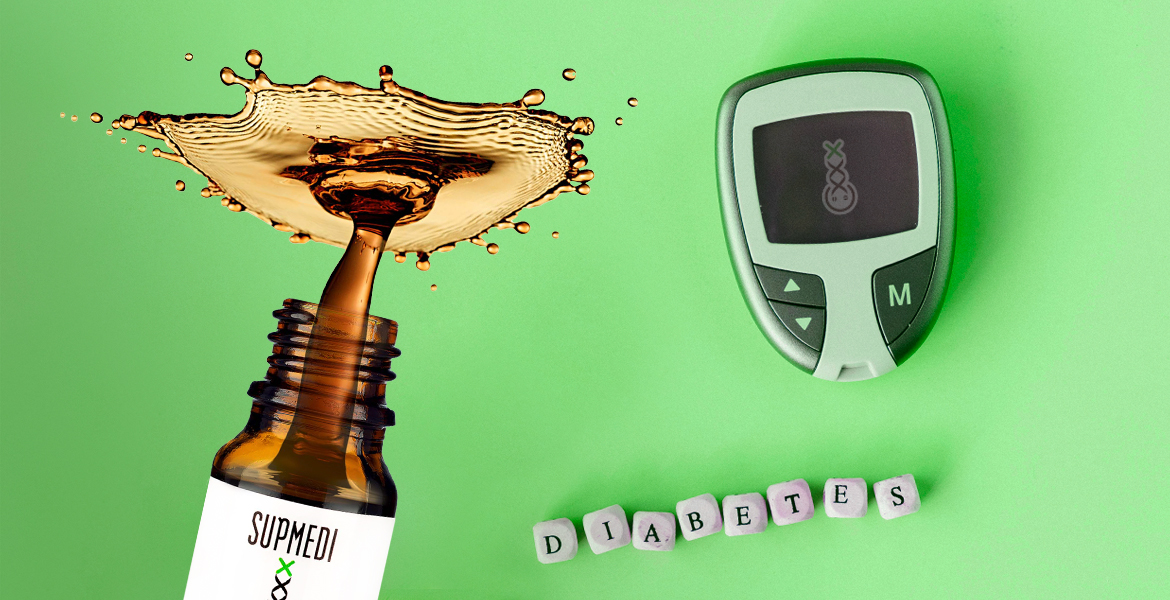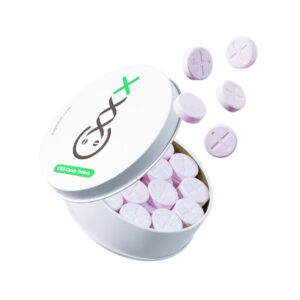
CBD as a Therapy for Diabetes
5 December 2024Diabetes symptoms can be managed with medication, but can CBD also be used as a therapy? The advantage of CBD lies in its wide range of effects on the body, which can help alleviate multiple symptoms. In this blog, we explore how this natural remedy may assist and support those living with diabetes.
The Potential of CBD as a Diabetes Therapy
Many people have already discovered it: CBD oil is a versatile remedy. Increasingly, research highlights the power of cannabinoids and their impact on the body, particularly their interaction with the endocannabinoid system (ECS) and their anti-inflammatory, pain-relieving, and calming effects. Derived from the hemp plant, CBD has the added benefit of being non-psychoactive.
But what role can it play in diabetes management? Diabetes is the seventh leading cause of death globally. It is a metabolic disorder affecting 460 million adults, a figure expected to rise to 590 million by 2035. Diabetes is characterized by high or low blood sugar levels caused by insufficient insulin production or insulin resistance. This can result from the destruction of insulin-producing cells in the pancreas or a loss of cellular response to insulin. Diabetes is generally categorized into type 1 and type 2.
However, it’s not just blood sugar imbalances that make diabetes a dangerous condition. It is associated with over 100 potential complications, including organ damage, kidney dysfunction, neuropathy, cardiovascular issues, brain damage, and vision loss. Additionally, living with diabetes can cause significant stress and anxiety. These factors contribute to the high burden of this disease. So, what are the possibilities for CBD in managing diabetes?

Diabetes as an Inflammatory Disease
Many complications of diabetes stem from high blood sugar levels, which lead to inflammation throughout the body. This can impair organ function and trigger additional problems. Nerves can also be damaged, resulting in neuropathy, which manifests as tingling, stabbing pain, or a burning sensation in the extremities.
CBD’s properties may help reduce these symptoms. It has anti-inflammatory and analgesic effects. Research shows that the ECS is involved in pain perception and inflammation. Neurotransmitters like anandamide also play a role. CBD can influence the ECS and, in turn, the processing of pain signals. By reducing inflammation, CBD can decrease swelling, redness, and pain, potentially protecting organs and preventing severe complications like kidney failure, heart problems, or brain damage.
CBD for Stress and Anxiety
Stress, worry, and anxiety are common complaints among people with diabetes. CBD can also be effective in managing these symptoms, which is crucial since stress itself exacerbates diabetes. The reasons for this stress are easy to understand.
Unpredictable symptoms, such as sudden hypoglycemia leading to fainting, self-administering medication, managing treatment, and dealing with daily discomfort all contribute to heightened stress levels. Many people with diabetes struggle with this. Unfortunately, the more stressed you are, the worse your diabetes symptoms can become. Stress throws the body further out of balance, directly impacting blood sugar levels. Managing stress is therefore essential.
CBD can help. Known for its calming and soothing effects, CBD promotes mental relaxation and inner peace. Many people report less worry and reduced stress when using CBD. It is also widely used for anxiety relief. Additionally, CBD can assist with stress-related sleep issues, an important factor in mitigating diabetes-related symptoms.

How to Use CBD as a Therapy for Diabetes
It’s clear that CBD holds significant potential for alleviating diabetes-related symptoms. However, the precise mechanisms behind its effects on a molecular level remain unclear. Understanding how CBD works is key to developing more effective treatments, and ongoing research aims to uncover these mechanisms.
Regardless, cannabidiol offers considerable support for health and well-being in diabetes patients. If you are considering using CBD for diabetes-related symptoms, consult your doctor first, especially if you are taking other medications. CBD can interact with medications, so ensuring safe use is essential.
CBD can be consumed in various forms. While the effects are similar, the method of intake and the speed at which effects are felt may differ. CBD oil can be placed under the tongue for rapid absorption. Alternatively, you can opt for CBD tablets, which dissolve under the tongue and are sweetened with mannitol, a safe option for diabetes patients. CBD-infused foods are less suitable, but CBD coffee provides a delicious way to incorporate your daily dose, making it an excellent way to start your day.

CBD Candy Tablets200 mg CBD
€11.50







